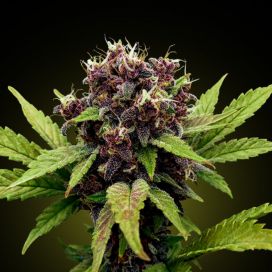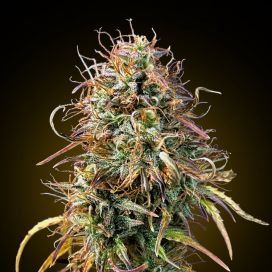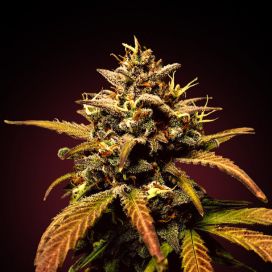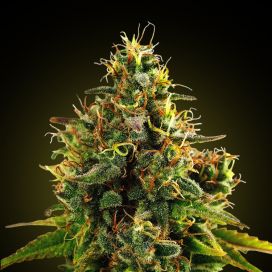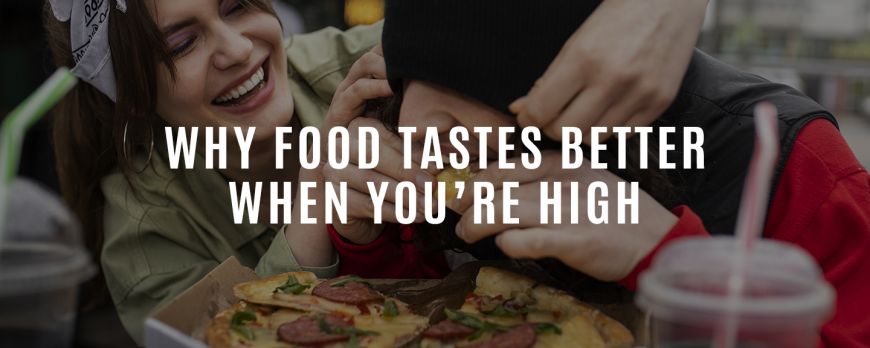
Why Food Tastes Better When You’re High?
Have you ever wondered why pizza tastes incredibly delicious or why a simple chocolate bar feels like a gourmet experience when you’re high?
It’s common anecdotal evidence reported by cannabis users: food simply tastes better and is often more enjoyable when they’re under the influence.
This phenomenon isn't just hearsay; there is scientific evidence that explains why this heightened gustatory sensation occurs.
Let's take a look into the reasons behind this amplified pleasure in food consumption.
How Does Marijuana Affect The Human Body?
Ingesting cannabis, quite notably by smoking, exerts various effects on your body.
A study conducted in 2014 and published in the journal Nature Neuroscience found that in mice, THC (the active hallucinogenic compound in cannabis) was able to stimulate receptors in their brains that notably enhanced their olfaction or sense of smell.
Since taste and smell are intrinsically connected senses, an amplified sense of smell can cascade into an improved flavor perception, even making something as simple as a piece of bacon seems exceptionally delicious.
Understanding the impact of cannabis on the human body is a complex task, with many facets yet to be unveiled. According to a neuroscientist at the University of California, Riverside, THC in cannabis activates cannabinoid receptors present not only in the brain but also in the tongue and gut. These receptors are key regulators of functions such as mood, memory, and pleasure.
The scientists posit that the activation of these receptors, especially those in our tongue and gut, initiates a signal sent to our brain, signaling cravings.
Among the multitude of processes triggered by the psychoactive effects of cannabis, it's primarily our brain that makes us perceive that even store-bought cookies can taste as delightful as a homemade batch.
Enhanced Culinary Experiences and Cravings for Intense Flavors
Cannabis enthusiasts often report a noteworthy elevation in their food experiences during a high. This phenomenon goes beyond the mere intensification of flavors; it envelops a newfound appreciation for the texture and the entirety of the gustatory journey.
Ordinary snacks that go unnoticed in a sober state transform into a complex and rich tapestry of enjoyment. Concurrently, there's a pronounced inclination toward foods that pack a punch in terms of taste—be it the sweetness of desserts, the saltiness of chips, or the kick from spicy cuisine.
While the science behind this preference for more robust flavors isn't entirely fleshed out, it's believed to be tied to cannabis's ability to sharpen the senses, drawing individuals towards flavors that satisfy these amplified sensory cravings.
The Science of the Munchies
The "munchies," a term lovingly coined and widely recognized, marks the surge in appetite and the pronounced enjoyment of taste and texture that often accompanies a high. This whimsical word masks a complex interplay of neurobiological activities that awaken a heightened sensory world.
The underpinning science offers a fascinating look at how a few puffs can transform an ordinary snack into a feast of flavors.
1. THC and Your Taste Buds
THC, or tetrahydrocannabinol, is the primary psychoactive compound in marijuana. When you consume cannabis, THC binds to cannabinoid receptors in your brain. These receptors are part of the endocannabinoid system, which plays a pivotal role in regulating appetite, pain, mood, and memory. Specifically, THC activates the CB1 receptor, which can increase hunger and enhance the smell and taste of food.
2. Heightened Sensory Perception
Cannabis consumption affects the olfactory bulb in your brain, which could make you more sensitive to the smells and flavors of food. The olfactory bulb has a direct impact on the capacity to taste. In other words, because your sense of smell is heightened, your perception of flavors can intensify too.
3. Dopamine Release
When high on cannabis, there is an increase in the release of dopamine, the "feel-good" neurotransmitter. This dopamine release increases the pleasure you experience from eating, as dopamine is closely linked to reward and pleasure centers in the brain. Everything feels more pleasurable, and that includes the consumption of food, which naturally has its reward sensations.
4. Ghrelin Elevation
THC can increase the production of ghrelin, a hormone that stimulates appetite. Known as the "hunger hormone," ghrelin sends messages to your brain to increase hunger. So when ghrelin levels are up, you might find yourself not only hungrier but also more attuned to and appreciative of the flavors in your food.
5. Palate Enhancement
Another fascinating discovery is that THC may trigger a surfeit of blood flow to the brain's taste centers, enhancing the perception of flavor. This phenomenon makes each bite or sip of food taste exceptionally more vivid and rich, potentially explaining why many people report enhanced enjoyment of foods' flavors when they are high.
Can the Munchies Be Avoided?
Preventing the munchies requires a bit of pre-planning and self-awareness. While research in this area is ongoing, common advice suggests:
- 1. Choosing the right strain
Some cannabis strains might incite stronger munchies. Opting for strains with higher CBD content and lower THC might reduce hunger cues.
- 2. Staying hydrated
Drinking plenty of water before and after consuming cannabis can help reduce false hunger.
- 3. Planning healthy snacks
If the munchies are unavoidable, have nutritious snacks on hand. Go for fruits, nuts, or yogurt to satiate those hunger pangs without the guilt.
- 4. Timing your meals
Try timing your cannabis use after a substantial meal to minimize the likelihood of increased appetite.
- 5. Keeping busy
Distract yourself with activities. Sometimes, munchies might be more about boredom than actual hunger.
- 6. Understanding your body
Listen to your body's cues. Learn the difference between genuine hunger and the urge to eat as a side effect of cannabis.
Concluding Munchies
The reason food often tastes better when you’re high is an intricate interplay of physiological and neurochemical processes triggered by the presence of THC in your system. This creates a unique sensory enhancement that amplifies the taste, smell, and pleasure of eating.
Alongside increased hunger signals and the elevation of mood, this makes for a powerfully enjoyable gastronomic experience.
As with all things, moderation is key. While it might be tempting to indulge in a cannabis-infused sensory feast, understanding the effects and potential health impacts can help guide a more mindful enjoyment of this peculiar phenomenon.
Remember, the effects of cannabis can vary greatly from person to person.
While some may experience profound enhancements in flavor and enjoyment, others may not notice as significant a change. It's essential to understand your responses and enjoy them responsibly.
Leave a CommentLeave a Reply
Blog categories
Blog search
Latest Comments

